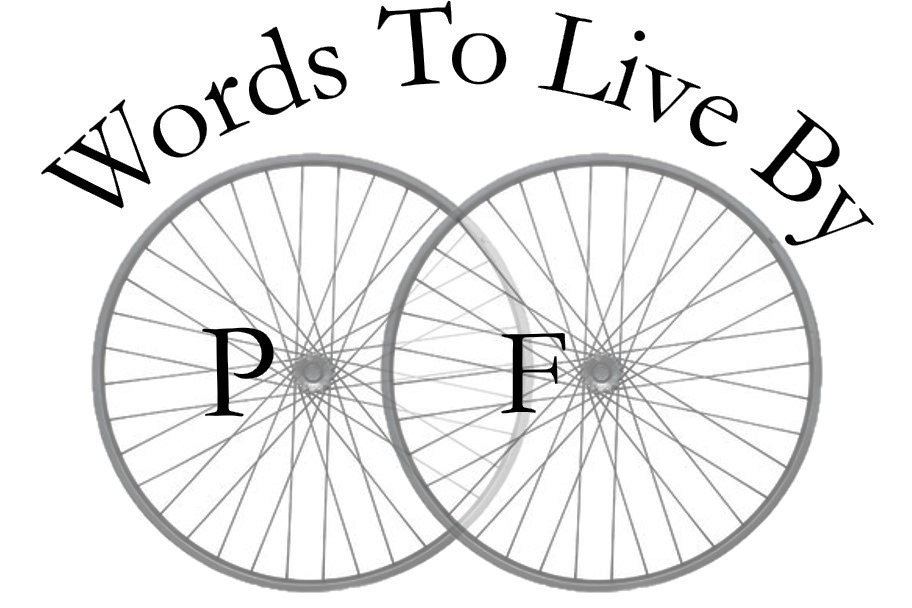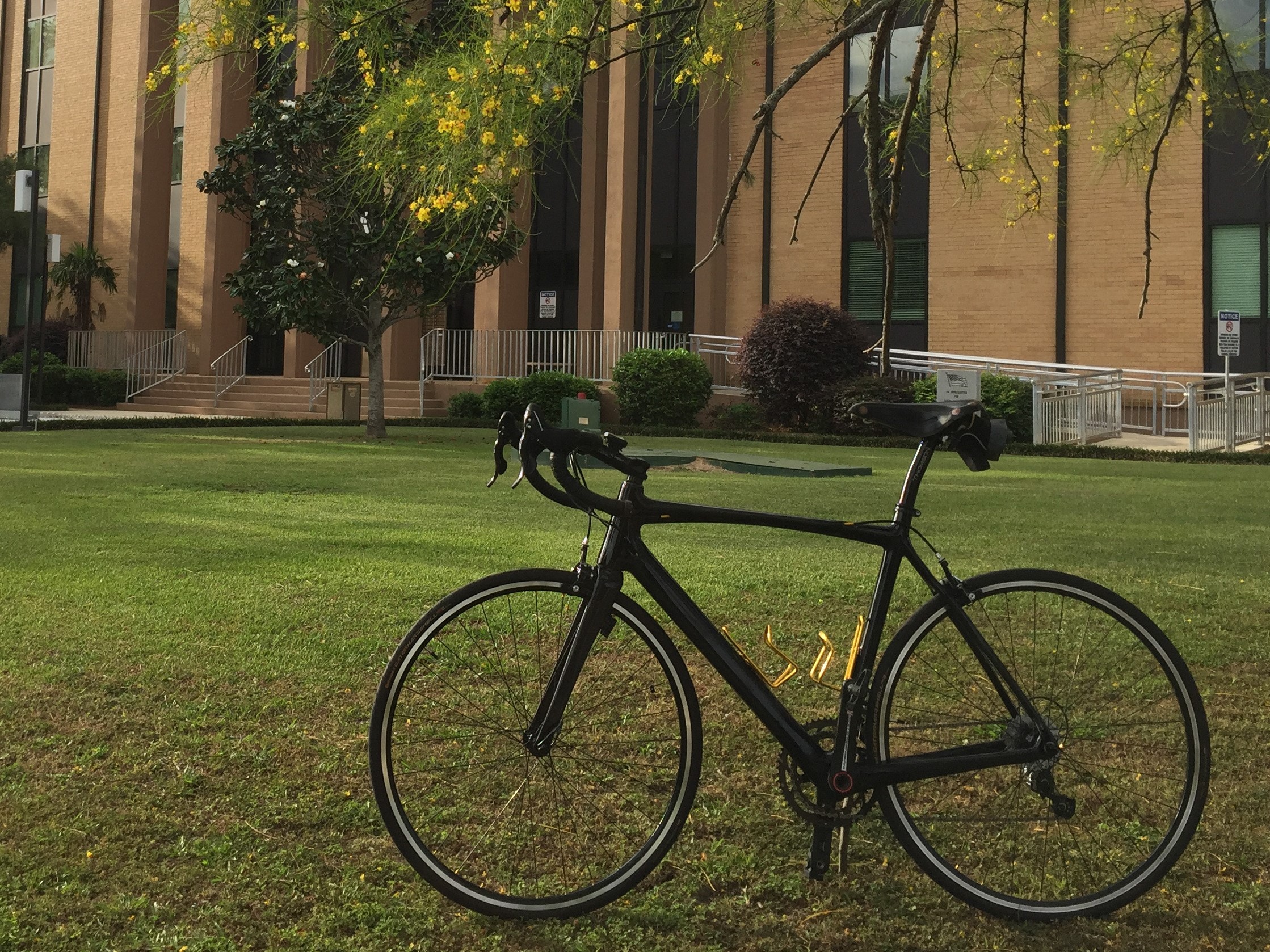Are we there yet?
Hugo Black is complete.
Its Asian-manufactured carbon frame and fork are fitted with the pride and style of Italian components to transfer power to it, the advantage of American boutique engineering in the stem and stern of the cockpit, and the enduring stolidity of English tannery beneath my ass.
The black Team Professional Brooks saddle and its copper-plated rails are beginning to break in now, with more than a thousand miles of my sit bones imprinted upon its tensioned leather seat. The tires have rolled along the pavement upon the Kevlar-woven Vulcanized rubber of German tires for those same thousand miles, seated in rims suspended by spokes built around precision hubs of the greatest technical advancement and surefire strength.
It rides so beautifully, silently, honestly. There is so much sensational anecdote I could ascribe to its technical performance, but it is without evidentiary merit. This does not, however, discount the feelings. It feels fast. It feels responsive. It feels light and strong at once, a magical amalgam of apparent irreconcilable attributes.
The bicycle is, by acclimation, the most perfect of machines for human self-propulsion, wondrous in its efficiency along even the most primitively improved tracks. And this, this iteration, Hugo Black, is the best of those I’ve wheeled.
More than what’s there, though, are absences, what seems to have vanished. This machine intercedes least between my effort and going fast. Whatever power I am able to muster is transferred, it feels, seamlessly and without loss to the rolling advance of this contrivance. It is – it feels as if it is – an extension of me. It is the most perfect expression of bicycle I have ridden. The idea of a bicycle it epitomizes to me, the kind of bicycle I want, is as a vehicle to explore, to push, to seek and find.
There’s more.
I am proud of myself. The patience, care and acumen I brought to bear on assembling this bicycle is out of the ordinary. Or out of character. I read the instructions before I acted. I thought through what I was going to do next and a step after that. If things were not going as expected, I stopped and reconsidered rather than muscling ahead.
There was, of course, one rule-proving exception on New Year’s Eve.
That error was remedied and its lesson expensively and expansively learned. Longer and consistent proof of concept is still required, but there is some hope this represents a new trick for an increasingly old dog. There is some evidence this is so.
I’ve pedaled this bicycle for three months and more than 1,000 miles. It fits. Rare are the hills here abouts that can’t be conquered from the saddle with the gearing Hugo features. It’s comfortable. The reach, the hand holds, the lean, the balance, the hunkering pull and the standing hammer all feel right and optimized.
The payoff is in the performance of this ride: unerring shifts, low friction spinning stuff and brake feathers to modulate descent.
This project is done, save for the riding. Time to move to what’s next. First up is a tandem adventure, a Panhandle tour. We’ll document that here. Then, most enticing, is the prospect of tearing down the Cloud Bike and building it back up anew, shiny and tuned to perfection. If those lessons of patience and purpose have been learned, it’s going to be a bicycle to behold once again. Or it may even be a revelation, a realization the Cloud Bike was never all it could be but finally will become.
Until then, let’s go for a ride.
Frame: 1070 grams
Fork: 410
Seatpost: 193
Saddle: 540
Headset: 85
Stem: 155
Handlebars: 269
Levers: 350
Cables and housing: 354
Brakes: 623
Bottom Bracket Cups: 29
Cranks: 585
Chain: 256
Cassette: 292
Rear hub: 293
Front derailleur: 76
Front hub: 116
Rims: 450
Spokes/nipples: 413
Tires: 560
Tubes: 140
Water bottle cages: 200
Handlebar wrap: 104
Woodford Reserve stoppers/bar ends: 45
Running total: 7791 grams, 17.1762148 pounds



